When prime ministers sense the end is near, they tend to follow a similar pattern. They change senior civil servants and appointees, as Boris Johnson and Gordon Brown did. They avoid consulting their cabinet and instead hide behind special advisers. They declare they don’t like polls, before saying that the only poll that matters is the election. But before all of this, they usually attempt a ‘reset’. It’s rarely a sign of rejuvenation, but rather the start of the embalming process.
Rishi Sunak is aware of this, which is why there’s no use of the word in No. 10 as politics prepares to resume. He has so far resisted calls from backbenchers to change course, ditch his five priorities and articulate a grand new vision. ‘We can’t be knee-jerk,’ says a Downing Street aide of the need to stay calm in the face of dismal polling. But while there won’t be an official event or reset, a second stage of Sunak’s premiership may be about to begin. After the first year – in which he focused on stabilising both markets and his party – he is ready to change gear.
His political operation is set to become more election-ready and in sharpened attack mode. We should expect to see a focus on Keir Starmer’s time as director of public prosecutions. The party conference, the King’s Speech and the Autumn Statement will all be used as opportunities to show what a Sunak government can do. There is an appetite for risk in the Tory party, created by the failure to close the 20-point polling gap with Labour. The election strategist Isaac Levido has warned colleagues not to expect much improvement this year. Labour is being ultra-cautious – with Rachel Reeves ruling out a wealth tax – which has incentivised the Tories to shake things up.
But Sunak is reluctant to do so for the sake of it. Tentative plans for a reshuffle when MPs returned from the summer break have been delayed until after the party’s annual get-together in October. Reshuffles tend to create enemies, when MPs miss out on promotion or, worse, find themselves sacked. ‘You don’t want a load of pissed-off people at party conference talking to journalists,’ explains a minister. Not everyone agrees. ‘Delaying it is mad,’ says a government aide. ‘It looks weak.’
A new defence secretary will, however, be appointed to succeed Ben Wallace, who wants to return to the backbenches before stepping down as an MP at the next election. Those hoping for fireworks are likely to be disappointed. One government insider says they are looking for a candidate who is ‘efficient, non-flashy, loyal, decent’. They want someone No. 10 can trust not to whip up a row about the defence budget. Despite this, suggestions that John Glen (a key Sunak ally who currently serves in the Treasury) is next in line are probably wide of the mark.
Loyalty is valued, particularly so following the resignation of Nadine Dorries, who is out to destroy Sunak. Seventy-eight days after she first said she planned to quit with ‘immediate effect’, the former culture secretary sent her resignation note to the press, rather than the Prime Minister. Sunak lacks vision, she said, and presides over a zombie parliament.
While some MPs privately agree, Dorries’s behaviour has appalled enough of them to deny her much of a following. ‘She behaved so badly people almost feel sorry for us,’ says a minister. ‘As damp squibs go this one was really damp,’ another adds.
Dorries is right to say that she can inflict pain on Sunak. Her decision to officially resign means a by-election in Mid Bedfordshire is due in the autumn. The safe seat, with a 24,664 Tory majority, looks at risk. The only ray of light for Sunak is that the Lib Dems and Labour both claim they can win the contest, which means they might split the vote and allow the Tories to sneak through the middle. Labour has led in the polls there but the Lib Dems argue they have form when it comes to winning by-elections from third place. They also seem to have significant appeal with voters appalled by the Tory mayhem who don’t want to endorse Keir Starmer.
The Liberal Democrat candidate is a member of the local Women’s Institute. Labour’s candidate grew up in Bedfordshire but is a London councillor who had been part of a Greenpeace demonstration against the Tories’ public order bill. ‘They won’t win votes in the rural villages,’ says a Lib Dem source. A Tory loss would undoubtedly add to a sense of fatalism in the party.
Sunak’s immediate problem is passing the tests he set himself in January. ‘We’re either delivering for you or we’re not,’ he said as he revealed his five pledges (to halve inflation, cut debt, grow the economy, cut NHS waiting lists and ‘stop the boats’). While down 15 per cent on last year, the number of small boat arrivals is still high. Downing Street is bullish that inflation will fall. ‘Even if we’re out by a month, it’s a win,’ says one figure involved. However, there is concern in the Treasury that the victory may be technical. A ‘win’ still means inflation of 5 per cent, more than double the Bank of England’s target.
At party conference in Manchester, Sunak will attempt to go further. He will appear both in a town hall-style set-up with members – where aides think he fares best – as well as giving the traditional leader’s speech. It will be Sunak’s chance to present himself as more than just a manager. Expect a special focus on an education system that encourages children to want to learn.
In November, the King’s Speech will focus on dividing lines with Labour on crime as well as energy security. But Sunak wants to keep it in line with the five priorities and to make a virtue of his refusal to waver from this agenda. The speech may well be slim, to make sure the bills included offer little opportunity for Labour to add amendments. The Autumn Statement will then be used to address the two issues holding the economy back most: business investment, and those on out-of-work benefits. A change to the amount of capital allowance may be included in the statement.
In a letter to MPs before the summer recess, Sunak said: ‘In the autumn, we will also be setting out more of our plan for Britain. I am determined that we will stand on a properly Conservative platform next year.’ Many MPs hope that means tax cuts are on the horizon, which is still No. 10’s intention. But to turn his party’s fortunes around, the PM needs to show he is willing to take risks.
Got something to add? Join the discussion and comment below.
Get 10 issues for just $10
Subscribe to The Spectator Australia today for the next 10 magazine issues, plus full online access, for just $10.
You might disagree with half of it, but you’ll enjoy reading all of it. Try your first month for free, then just $2 a week for the remainder of your first year.


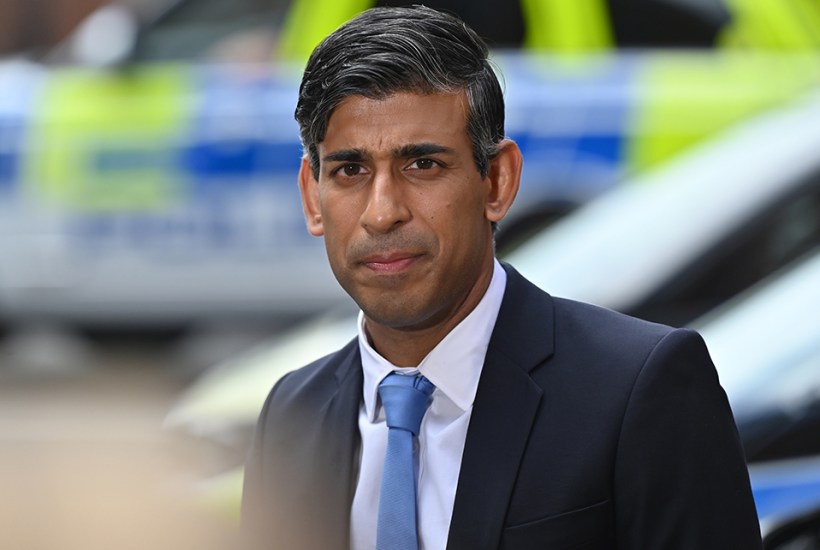


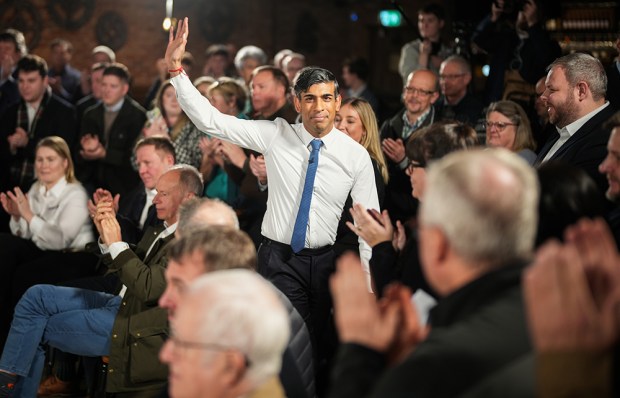
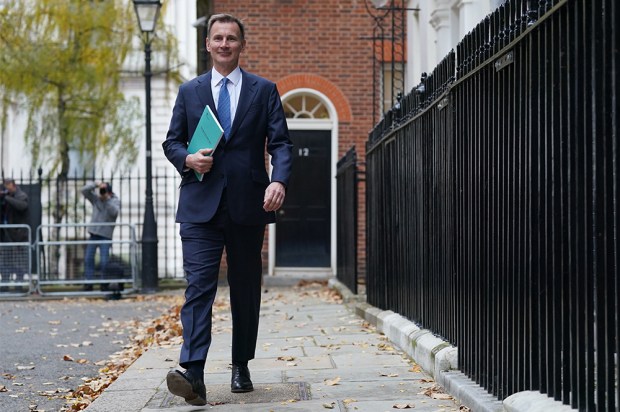
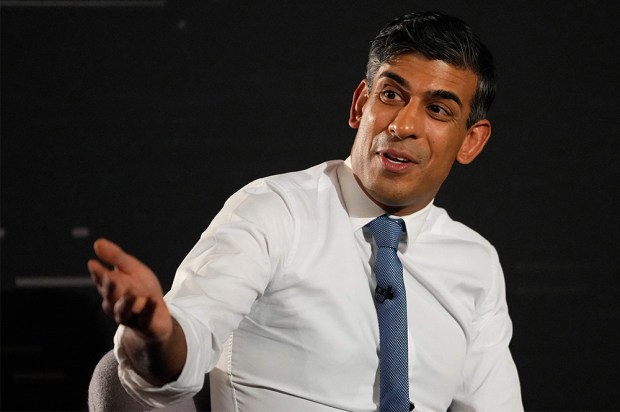
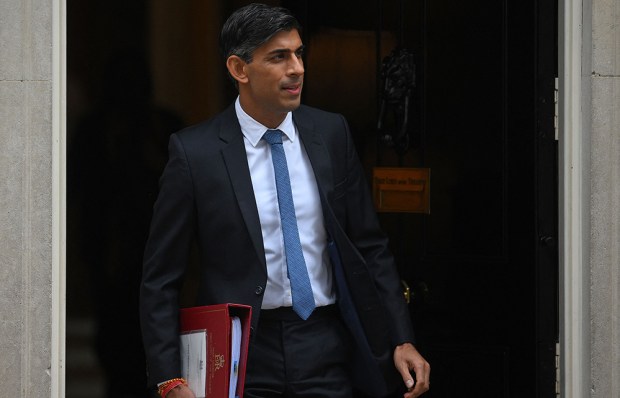






Comments
Don't miss out
Join the conversation with other Spectator Australia readers. Subscribe to leave a comment.
SUBSCRIBEAlready a subscriber? Log in